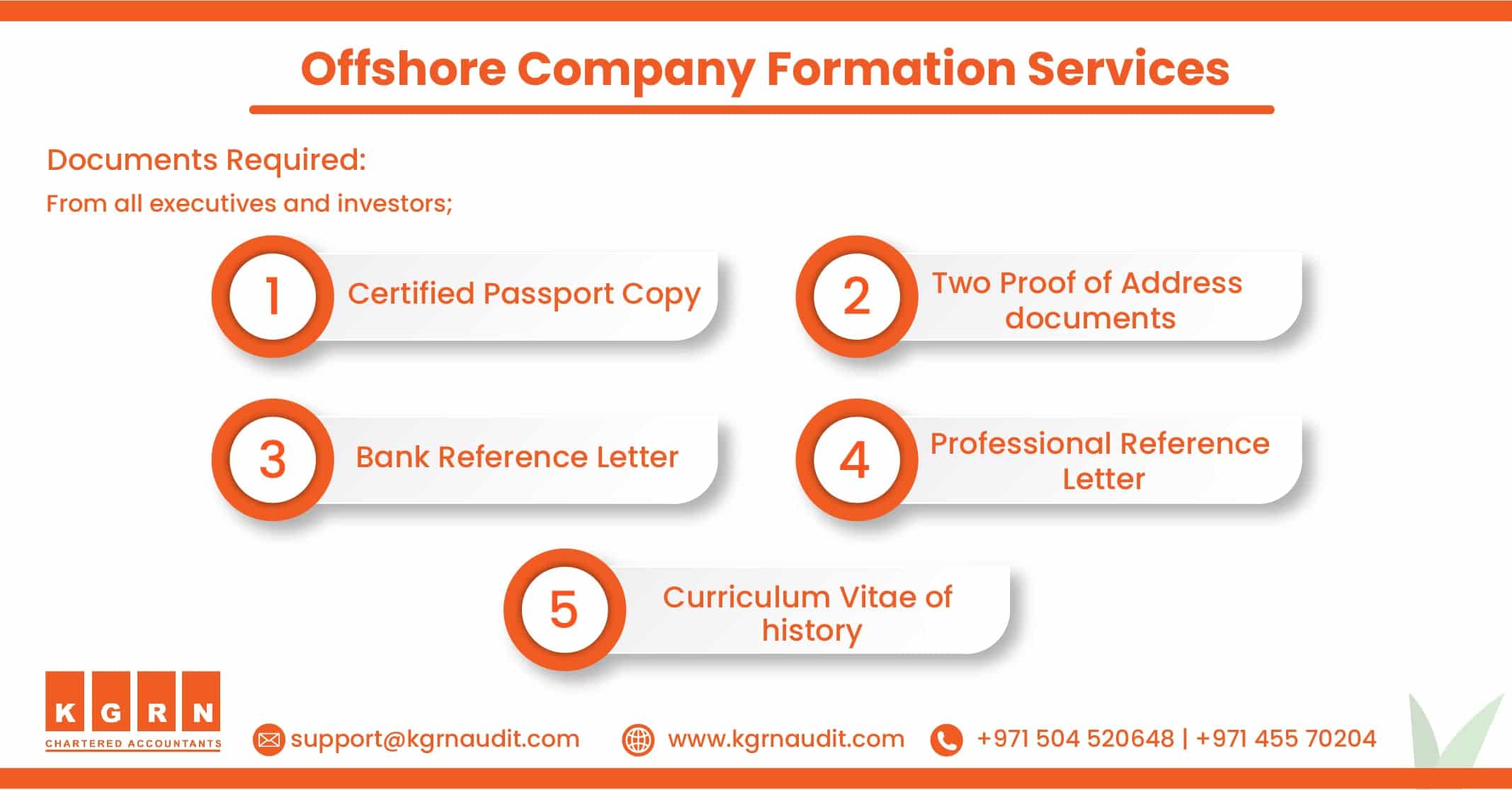Browsing the World of International Company: Insights on Offshore Company Formation
Offshore Company Formation presents a tactical opportunity for international business procedures. It offers remarkable benefits, such as tax obligation optimization and boosted personal privacy. The procedure is not without its obstacles. Comprehending the intricacies of various jurisdictions and regulative requirements is crucial. As organizations think about these choices, the steps involved can substantially impact their long-term success. What are the vital variables that can bring about reliable offshore administration?
Comprehending Offshore Business: Meaning and Purpose
Offshore companies have actually ended up being a focal factor in global service discussions due to their unique lawful and monetary frameworks. These entities are developed in territories beyond the owner's nation of residence, frequently with positive regulative atmospheres. Commonly, overseas business serve various purposes, such as possession protection, tax optimization, and improved privacy. They can run in several markets including technology, profession, and finance, supplying adaptability for worldwide operations.The specifying characteristic of an offshore Company is its capacity to conduct company globally while taking advantage of minimized tax obligation responsibilities and regulative worries. This framework attract investors and entrepreneurs seeking to diversify their portfolios and manage dangers successfully. Furthermore, several offshore jurisdictions use motivations to draw in international investment, bring about a rise in the Formation of these business. Understanding the meaning and objective of offshore companies is important for maneuvering with the complexities of international business and funding circulation.
Secret Benefits of Offshore Company Formation
The Formation of an offshore Company offers a number of engaging benefits that draw in business owners and investors alike. Among the primary advantages is tax obligation optimization; several territories give favorable tax obligation prices or exceptions, allowing organizations to make best use of profits. Furthermore, overseas companies typically take pleasure in better privacy, as numerous territories have stringent personal privacy regulations shielding the identifications of Company proprietors and shareholders.Another considerable benefit is property protection. Offshore entities can safeguard assets from political instability and economic declines in the proprietor's home country. In addition, these business can facilitate international trade, giving very easy access to international markets and streamlining cross-border transactions.The adaptability in business framework likewise allures to local business owner, as offshore companies can be tailored to satisfy certain functional demands. On the whole, the tactical Formation of an overseas Company can bring about enhanced economic security, operational effectiveness, and a robust global presence.

Usual Difficulties in Establishing Offshore Entities
Developing overseas entities presents several obstacles that businesses have to browse. Secret problems include regulative conformity, which can differ considerably across territories, and the impact of social distinctions on procedures. In addition, organizations must take into consideration the risks and prices linked with preserving an overseas visibility, which can influence general stability.
Regulatory Conformity Issues
When they seek to develop overseas entities, navigating regulatory compliance problems poses substantial obstacles for companies. Each jurisdiction has its own set of laws and regulations, which can differ commonly and may be challenging to navigate. Firms usually deal with obstacles associated to tax compliance, anti-money laundering regulations, and reporting needs. In addition, changes in global tax laws can produce uncertainty, making it crucial for businesses to remain upgraded on compliance responsibilities. Failure to follow these laws can cause severe penalties, consisting of fines and reputational damages. Engaging and comprehending the legal structure with local experts is essential for effective overseas operations, making certain that businesses can operate within the boundaries of the legislation while enhancing their global strategy.
Social Distinctions Effect

Cost Considerations and Threats
Steering via the financial landscape of overseas entity Formation provides various price considerations and inherent dangers. First setup costs frequently include lawful fees, registration costs, and compliance costs, which can gather significantly. In addition, ongoing maintenance costs such as yearly charges and audit solutions must be factored in. Additionally, varying regulatory settings in different territories position threats, potentially causing unforeseen costs or legal difficulties. Companies may additionally come across obstacles associated with taxation, financial, and reputational issues, which can impact success and functional effectiveness. Possible business owners need to conduct extensive due diligence and financial forecasting to mitigate these dangers and guarantee sustainable development. Comprehending these cost factors to consider is essential for successful offshore service ventures.
Steps to Establish an Offshore Company
Developing an overseas Company includes numerous important actions that need careful factor to consider. Trick elements consist of selecting the appropriate jurisdiction and ensuring conformity with regional regulations, alongside collecting needed documents. Understanding these elements is necessary for an effective offshore business setup.
Selecting the Right Territory
Picking the best jurisdiction is critical for any person aiming to establish an offshore Company, as it can greatly affect the business's legal responsibilities, tax obligation obligations, and operational simplicity. Numerous aspects ought to be taken into consideration, consisting of the political security, governing setting, and tax incentives supplied by potential territories. Popular options often consist of nations with desirable tax regimens, such as the British Virgin Islands or Cayman Islands, due to their reduced or absolutely no tax obligation rates. Furthermore, the simplicity of operating and the credibility of the territory can affect investor confidence and market access. Eventually, a knowledgeable decision based upon thorough research will ensure the offshore Company is positioned for long-term success and conformity with international criteria.
Needed Paperwork and Conformity
When establishing up an overseas Company, recognizing the essential paperwork and compliance requirements is vital to assure a smooth procedure. Secret papers generally include a certificate of incorporation, a memorandum and posts of organization, and evidence of identification for directors and investors. Some jurisdictions might need added info, such as company plans or bank recommendations. Compliance with regional legislations is essential, which frequently entails selecting a registered representative and preserving an authorized office. Routine reporting and adherence to tax obligation commitments need to additionally be thought about. Failure to abide by these demands can lead to fines or perhaps dissolution of the Company. Extensive preparation and appointment with lawful experts can aid navigate these complexities successfully.
Picking the Right Territory for Your Offshore Company
Just how can one determine one of the most ideal territory for an overseas Company? Picking the ideal jurisdiction calls for careful factor to consider of numerous factors. The legal and tax obligation setting plays a crucial duty; jurisdictions with desirable tax regimens may improve organization success. Additionally, the political stability and financial climate of an area can influence long-lasting organization viability.Another vital aspect is the availability of monetary services and financial facilities, which facilitate smooth procedures. Possible local business owner ought to also consider the ease of working, including the click here speed of registration and the clearness of regulations.Furthermore, language barriers and cultural distinctions can impact procedures; for that reason, lining up with a jurisdiction that aligns with service objectives and personal convenience is necessary. Ultimately, detailed research study and expert guidance can guide entrepreneurs in making a notified decision that lines up with their calculated goals.
Compliance and Regulatory Factors To Consider

Finest Practices for Handling an Offshore Company
Managing an offshore company calls for calculated planning and precise implementation to optimize performance and minimize risks. Developing a durable compliance structure is necessary to navigate varying guidelines throughout jurisdictions. Routine audits and threat assessments help determine prospective vulnerabilities.Moreover, leveraging regional knowledge with partnerships with neighborhood specialists can enhance operational effectiveness and social understanding. Using modern technology, such as cloud-based monitoring systems, improves communication and data monitoring, making it possible for much better decision-making. In addition, keeping clear monetary documents and making sure timely tax filings are essential to support the Company's stability. Buying team training and development cultivates a proficient labor force, advertising development and adaptability.Finally, establishing clear efficiency metrics and key performance signs (KPIs) helps analyze business progress and notify calculated adjustments. By sticking to these best techniques, firms can successfully manage their overseas operations, guaranteeing lasting success and sustainability in a competitive international industry.
Regularly Asked Questions
What Is the Expense of Developing an Offshore Company?
The cost of developing an overseas Company varies commonly depending upon jurisdiction, legal needs, and solutions needed. Generally, expenditures can vary from a few hundred to numerous thousand dollars, including enrollment, compliance, and annual charges.
How much time Does It Take to Develop an Offshore Entity?
The time required to establish an overseas entity varies significantly, commonly varying from a few days to numerous weeks (offshore company formation). Aspects affecting this period include jurisdiction, required documents, and the effectiveness of the provider involved
Can People Kind Offshore Companies Without an Organization Partner?
Individuals can undoubtedly create overseas firms without a service companion. Many territories allow single-member entities, encouraging business owners to establish and manage their services independently, while still profiting from possible tax benefits and legal protections.
Are There Any Type Of Tax Obligation Benefits for Foreign Investors?

What Kind Of Companies Frequently Use Offshore Companies?
Offshore companies are often utilized by various industries, including modern technology, money, and ecommerce. These entities usually serve functions such as possession security, tax optimization, and personal privacy, interesting both international companies and private entrepreneurs. Offshore companies have become a focal point in global organization conversations due to their one-of-a-kind legal and economic frameworks. They can operate in several industries consisting of modern technology, profession, and money, supplying adaptability for international operations.The defining quality of an offshore Company is its capability to conduct business internationally while benefiting from reduced tax obligations and governing burdens. In addition, offshore firms frequently appreciate better discretion, as lots of jurisdictions have rigid personal privacy legislations safeguarding the identifications of Company owners and shareholders.Another significant advantage is asset defense. These business can promote worldwide trade, supplying easy accessibility to international markets and streamlining cross-border transactions.The versatility in company framework additionally appeals to business proprietors, as overseas firms can be customized to fulfill certain operational needs. Selecting the best jurisdiction is crucial for anybody looking to set up an offshore Company, as it can considerably affect the company's legal obligations, tax responsibilities, and functional ease.